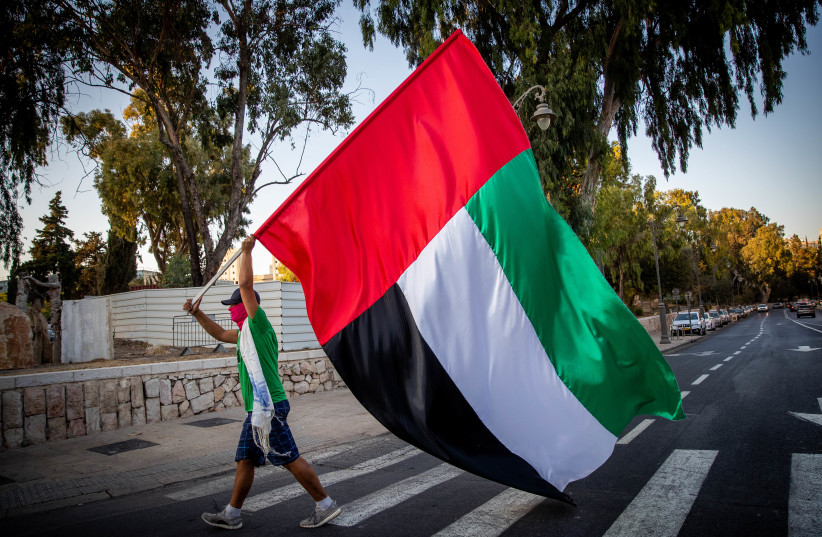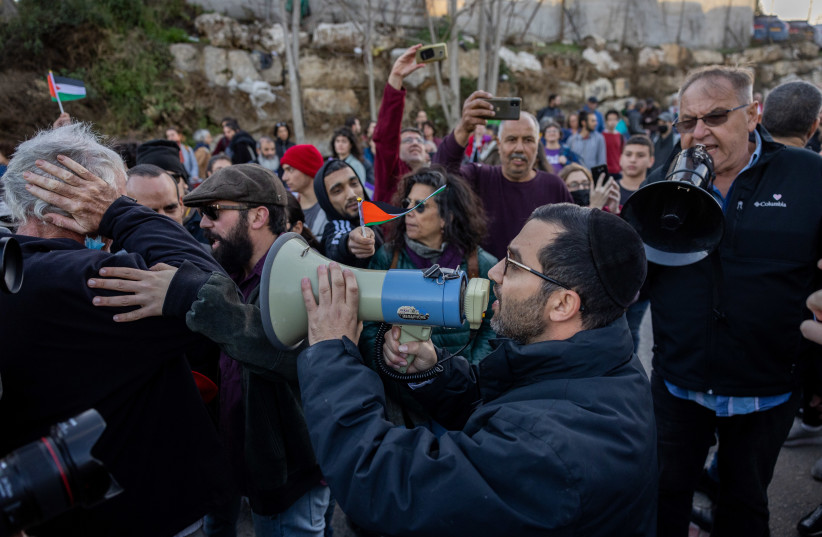Bad Nutritional Habits at Our Hospitals
Al Riyadh, Saudi Arabia, December 8
For more stories from The Media Line go to themedialine.org
Last week, while visiting someone at a local hospital, I walked over to a vending machine situated in the hallway to grab a snack. I stood in front of the machine and looked at the display. The shelves contained only one healthy substance: water! Everything else was unhealthy, consisting of processed sugars and saturated fat – biscuits filled with cream, cakes, croissants, juices and flavored milks. All of these products had poor nutrients, were rich in sugars, dyes, preservatives and artificial colorings. This might not normally be an issue, but it’s certainly an alarming reality when one considers the fact that this vending machine was located within a hospital. When a patient or visitor walks up to the device, he or she will not find foods that restore their energy or contribute to their health; instead, they’ll find poison.
They will essentially pay money to get a substance that will raise their blood sugar levels and increase their fat, thereby putting them at great health risk of diabetes, heightened blood pressure, kidney or liver dysfunction, bloating, infection or a heart attack. Selling such products at a place like a hospital is paradoxical, considering the fact that this is a place devoted to improving people’s health. You see this issue not just in the vending machines, but also in the meals provided by the hospital to the patients. In addition to the fact that over 60% of their ingredients are unhealthy, these meals are served in recyclable plastic dishes that contain toxins that may contaminate the food. The government devotes a huge annual budget to the Health Ministry and provides ongoing support for our health system.
Yet, ultimately, these health centers lack the ability to create a culture of health and wellness, especially in the food they serve. If we just look at diabetes, we will find that the prevalence of the disease is about 18%, making Saudi Arabia the seventh-ranking country in the world in terms of morbidity. Despite the huge budgets spent on our health care system, awareness of healthy eating remains very low. If diabetes, which is one of the most deadly diseases in the world, spreads in Saudi Arabia among citizens and residents, and even affects children, then it is our government’s duty to contain this epidemic and stop its spread. We must create healthy environments that encourage nutritious diets. Hospitals selling chocolate bars and croissants to visitors are clearly not serious about this mission. Is it mere ignorance or greed that make us jeopardize people’s lives?
– Hassan Mustafa
The UAE and Human Rights: Celebrating 50 Years of Achievement
Al-Itihad, UAE, December 9
Every year on December 10 countries around the world celebrate International Human Rights Day. This is the day on which the United Nations General Assembly adopted a historical document that outlines the inalienable rights of every human being in the world. Within the UAE, the commemoration of this day is extra special, since the Emirati government and people have been able to meld traditional Arab s
Indeed, since its establishment, the UAE succeeded in launching and maintaining a system of laws that honors the International Bill of Human Rights and guarantees equality for all. Our institutions have actively fought discrimination in all of its forms, especially on the basis of sex, gender and religion. The UAE has developed its legislative system to promote the values of tolerance and prevent extremism in a multinational and multicultural society. It issued the Federal Law on Combating Discrimination and Hatred, created a Tolerance and Coexistence Ministry and adopted the National Program for Tolerance. It also worked to establish institutions that contribute to the implementation of its vision, such as the International Institute for Tolerance; the Hedayah Center for Combating Violent Extremism; and the Sawab Center, fighting religious radicalization.
The inauguration of the National Commission for Human Rights came as a culmination of these efforts. The UAE’s achievements at the national, regional and international levels, through effective partnerships and international solidarity efforts, have contributed to strengthening the human rights system across the world and in the Middle East. The UAE has been a member of the UN Human Rights Council three times, contributing to the promotion of human rights values around the world, and confirming the state’s commitment to human rights issues. Furthermore, it was awarded a membership role in the UN Security Council during the next session, beginning January 2022, as an affirmation of its role and active presence in promoting international peace and security. – Aisha Al-Marri
Israeli Hatred of Arabs Isn’t New
Al-Nahar, Lebanon, December 10
Yesterday, the slogan “Death to the Arabs” was chanted and echoed by Jews in Jerusalem. Not a week goes by without Israelis shouting “Death to the Arabs,” in what seems to be a recurring trend. Let’s not forget that the most popular Jewish youth anthem of the 1930s and 1940s was “two banks has the Jordan – this is ours and that is as well.”
Indeed, settlers chant these kinds of remarks at racist rallies in the Sheikh Jarrah neighborhood of Jerusalem. Israeli Border Police that accompany the settler marches protect them while they chant these slogans at local Palestinians. These chants have become so popular that you even hear them in stadiums. Fans of the Israeli football club Beitar regularly chant “death to Arabs” when Arab players take to the field. And, throughout the West Bank, Israeli settlers burn down olive trees, cars and homes belonging to Palestinians while chanting “death to Arabs.”

Notably, the chants don’t end with Palestinians; they apply to all Arabs: a large race of people who live between the Gulf and the Mediterranean. Israeli school curricula enable this kind of racism. Religious schools continuously spread the words of extremist rabbis who describe the fight against Arabs as a “religious duty.” And this reality is further exacerbated by a system of laws and rules that favor those who are Jewish over those who are not Jewish.
Israeli historian Ilan Pappe, the author of the book The Ethnic Cleansing of Palestine, revealed documents proving that the policy of ethnic cleansing of the Palestinian people during the Nakba was a planned and deliberate campaign. In reviewing the second wave of Jewish immigration to Palestine, Pappe recounts that these people “were very poor and knew nothing about agriculture.” Fortunately for them, the Palestinians hosted them and gave them shelter and food, and, when it seemed that they would stay for a long time, they taught them how to farm and care for sheep, so that they would integrate into their new land. At night, these immigrants would write in their diaries
by candlelight, sharing their experiences in their new land, which is useful for historians. Pappe continues: “They wrote about mosquitoes, relationships, women, men, lack of sleep and everything in between… but their biggest point of contention was the presence of a large number of Arabs around them.” According to Pappe, one must understand this mentality, which has been preserved throughout the decades, to this very day. The chant “death to the Arabs” isn’t new. It has been chanted for more than a hundred years by Jews who simply won’t accept anyone else living by their side. Therefore, it will come as no surprise that the Israeli fascist right-wing has grown its popularity and dominance over society in recent years, and will continue to dominate Israeli political life for decades more to come. – Ghassan Zaqtan
Brotherly Relations Between Arab Countries
Al-Masry Al-Youm, Egypt, December 8
One of the funniest situations I ever experienced in my career took place during an official visit I took with late president Hosni Mubarak to Syria. On the day of our arrival in Damascus, then-president Hafez Assad requested to meet with the press delegation accompanying the Egyptian president, including all of the editors in chief of the major Egyptian newspapers. It was the first official visit of an Egyptian president in Syria since the severing of ties between the countries following the signing of the Egypt-Israel peace agreement. The meeting between the two leaders was cordial and warm. But the meeting with the journalists was slightly more tense. The Syrian president opened his remarks by reprimanding the Egyptian journalists for their hostile coverage of Syria during the years in which relations between the two countries took a downward turn. Assad kept his eyes focused on one of the prominent journalists in the room, Makram Mohamed Ahmed, as the subject of admonition.
But to everyone else in the room, it was clear that the Syrian president was actually citing and referring to an article written by Anis Mansour, who was sitting on the other side of the room. It immediately became clear that the Syrian president confused the two individuals and didn’t understand that the person he was lambasting was actually the wrong journalist. Following the meeting, we all laughed at the strange mix-up. Anis, of course, joked about the matter that entire day. And the jokes reached president Mubarak himself who, on our flight back to Cairo, laughed at the matter and reassured us that Assad’s reproach was fraternal and gentle.
Ever since that incident, I gained a deeper appreciation for the role played by a press secretary or information officer, who ensures that a leader always knows the names and faces of the people sitting in front of him at any event. But the other lesson I learned is that, despite these admonitions, Egyptian-Syrian relations remained strong. The relationships that exist between Arab countries are rooted in a deep history that can’t be brushed off by political differences between governments. Yes, there are always tensions at the surface level. But no matter our disputes or competing national interests, we all share a common culture that unites us as one people. – Mostafa Elfekifda
Translated by Asaf Zilberfarb.
